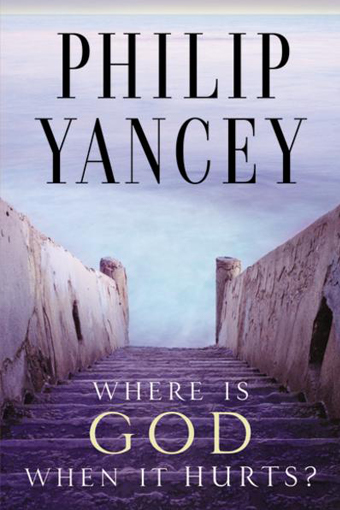Announcements

by the attic library

Available in the Attic Library
Philip Yancey
Philip Yancey
Call No. 248 YAN, 253.5 YAN
In this book, Philip Yancey touched on these questions: Where is God when it hurts? How a good God can allow suffering? How can we cope with pain? How do we respond to people in pain? How could a loving God allow Auschwitz? One third of the world went to bed hungry last night, how can we reconcile that with Christian Love? Pain is real.
From another perspective, pain is the gift nobody wants. The mechanism of pain in the human body operates much like a warning system. When we hurt, what is our body telling us? Pain sensors loudly alert our body to danger. Pain should be viewed as a communication network. Pain sensors stand guard duty with the singular purpose of keeping us from injury. Pain is indeed a gift. It is effectively designed for surviving life in this sometimes-hostile planet.
Pain demands the attention that is crucial to our recovery. For example, guilt is a pain message to the conscience informing us that something is wrong and should be dealt with. Accept it as a signal alerting us to attend to a matter that needs change. First, the person must locate the cause of the guilt, just as a person must locate the cause of his/her physical pain. Much of modern counseling deals with the process of weeding out reasons for false guilt. But a further step must follow: a pathway out of the guilt by addressing the root cause.
But what about the ultimate pain that leads to no recovery — death? The one legitimate complaint we can make against pain is that if it could not be switched off.
For the person who suffers, Christianity contributes one answer. The entire Bible representing 3000 years of history focuses like a magnifying glass on the painful execution and death at Calvary. But death is decidedly not the end of the story. The resurrection and its victory over death brought a decisive new word to the vocabulary of pain and suffering: TEMPORARY. Jesus Christ holds out the starting promise of an after-life without pain. Whatever anguish we feel now will not last.
Christian faith does not offer a peaceful way to come to terms with death. No, it offers instead a way to overcome death. Christ stands for life, and His resurrection should give convincing proof that God is not satisfied with any ‘Cycle of Life’ that ends in death. The problem of pain will have no ultimate solution until God recreates the earth; and we are sustained by faith in that great hope. This faith lies in one person, a faith so solid that no amount of suffering can erode it. To view the role of pain and suffering properly, one must await the whole story.